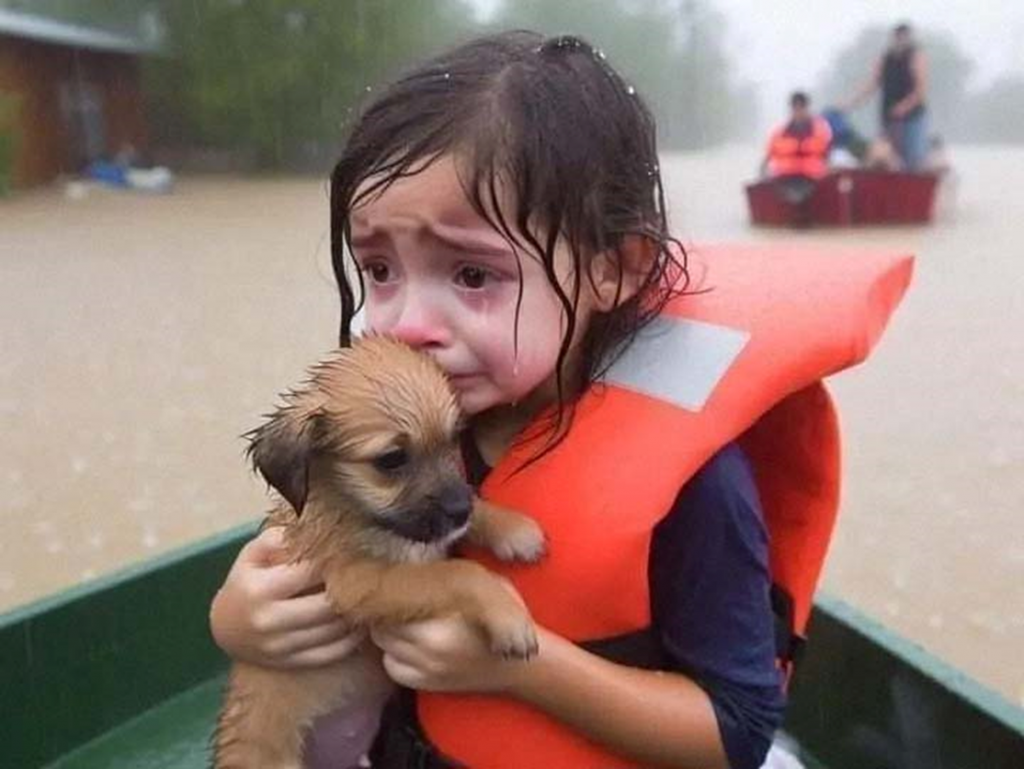Man
Professional
- Messages
- 3,222
- Reaction score
- 1,199
- Points
- 113
Hurricane Helen has become an excellent cover for cyber fraudsters.
Against the backdrop of more frequent natural disasters such as Hurricane Helen, Milton and other natural disasters, the US Cybersecurity and Infrastructure Security Agency (CISA) has issued a warning about the increased risk of cyberattacks related to fraud.
According to CISA, attackers actively use the chaos caused by disasters to generate realistic deepfakes using AI, as well as send fake emails and messages on social networks, which may contain malicious links or attachments aimed at manipulating public opinion, stealing personal information or hacking devices.

Believable AI generation of a little girl with a puppy
Users are advised to be especially careful when receiving messages with topics related to hurricanes, as well as when opening suspicious attachments and clicking on hyperlinks. The agency also urges caution in responding to requests for help on social networks, text messages and personal appeals regarding natural disasters.
CISA emphasizes the importance of verifying the sources of information. For reliable data, it is recommended that you only contact official local authorities and reliable emergency response organizations, such as the Federal Emergency Management Agency (FEMA) and Ready.gov.
In addition, CISA reminds you of the available resources to protect yourself from fraudsters. For example, the Federal Trade Commission (FTC) publishes advice on how to recognize fraud and make donations safely, and the Consumer Financial Protection Bureau informs about the most common schemes.
FEMA also offers guidance on how to prevent fraud during disasters, and for organizations, CISA provides anti-phishing materials to help stop attacks in the early stages.
When the elements are raging, it is important to remember that danger can come not only "from the street". Cybercriminals will always find a way to take advantage of chaos for their own gain, so users and organizations should pay attention not only to natural disasters, but also to fraudulent threats hidden in cyberspace.
Source
Against the backdrop of more frequent natural disasters such as Hurricane Helen, Milton and other natural disasters, the US Cybersecurity and Infrastructure Security Agency (CISA) has issued a warning about the increased risk of cyberattacks related to fraud.
According to CISA, attackers actively use the chaos caused by disasters to generate realistic deepfakes using AI, as well as send fake emails and messages on social networks, which may contain malicious links or attachments aimed at manipulating public opinion, stealing personal information or hacking devices.

Believable AI generation of a little girl with a puppy
Users are advised to be especially careful when receiving messages with topics related to hurricanes, as well as when opening suspicious attachments and clicking on hyperlinks. The agency also urges caution in responding to requests for help on social networks, text messages and personal appeals regarding natural disasters.
CISA emphasizes the importance of verifying the sources of information. For reliable data, it is recommended that you only contact official local authorities and reliable emergency response organizations, such as the Federal Emergency Management Agency (FEMA) and Ready.gov.
In addition, CISA reminds you of the available resources to protect yourself from fraudsters. For example, the Federal Trade Commission (FTC) publishes advice on how to recognize fraud and make donations safely, and the Consumer Financial Protection Bureau informs about the most common schemes.
FEMA also offers guidance on how to prevent fraud during disasters, and for organizations, CISA provides anti-phishing materials to help stop attacks in the early stages.
When the elements are raging, it is important to remember that danger can come not only "from the street". Cybercriminals will always find a way to take advantage of chaos for their own gain, so users and organizations should pay attention not only to natural disasters, but also to fraudulent threats hidden in cyberspace.
Source

